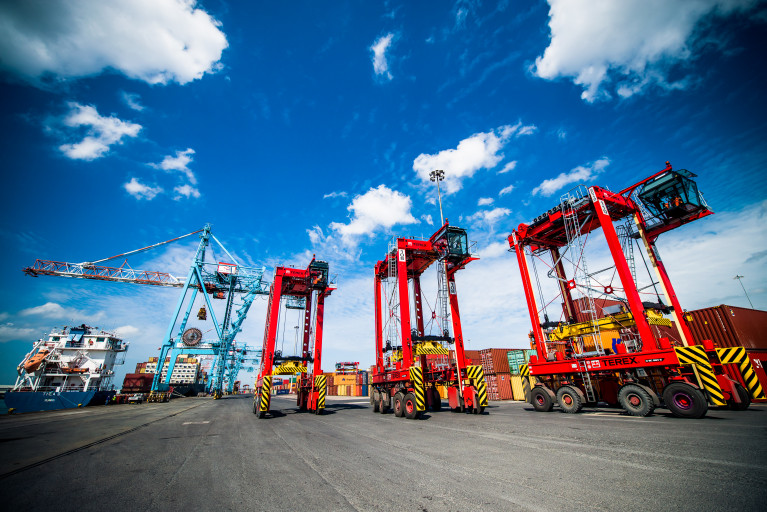Peel Ports, one of the UK’s largest port operators (incl. Liverpool), is to use greener alternative fuels for straddle carriers and plant equipment across the majority of its estate by 1 April, in an industry leading move.
Having set an ambitious target to become a net zero port operator by 2040, Peel Ports has acted ahead of the UK government’s change in legislation aimed at restricting the use of red diesels and other rebated biofuels.
The group’s wheeled asset and procurement teams started the process to address the carbon emission challenge for its plant and straddle carriers around 12 months ago, working closely with manufacturers such as JCB, Terberg and Combi-lift, amongst others. Testing with the new fuels started in November last year, in what has been hailed an industry-leading move by many of these suppliers.
The transfer to greener fuels will see 45% of Peel Ports’ plant equipment fleet moved to Hydrotreated Vegetable Oil (HVO), with 29% to electric throughout 2022. The group is working to move the remainder of its fleet to less polluting fuel alternatives as these become available.
The conversion of 3 million litres of diesel fuel to HVO will mean an annual carbon emission reduction of at least 70%, or 5.5 thousand tonnes, equivalent to taking 4,500 cars off the local roads for the whole year, helping to improve air quality around the ports.
HVO biodiesel uses plant-based oils in its composition, which reduces the amount of CO2 emissions to the atmosphere by up to 90%, and can also be substituted directly for diesel fuel. In addition, it is broadly considered a greener option to diesel due to its lower NOx emissions.
Lewis McIntyre, Managing Director Ports Services at Peel Ports said: “We are working hard to become a greener Port operator and looking into everything we do, making incremental changes to reach our net zero ambitions by 2040.
“The change in legislation in rebated fuels provided an opportunity to address the powering of our plant equipment and a further move towards our carbon neutrality goals.
“Whilst these transition fuels will offer a temporary improvement, they don’t provide a long-term solution and we are already working with manufacturers and suppliers who are developing the next generation of sustainable land equipment for all our operations.”
The port group has already replaced 50% of its diesel vans with a new electric fleet in 2021, and has a planned renewal programme to either electrify or convert the rest of the fleet to cleaner fuels by the end of this year, having earned the Commercial Fleet of the Year accolade by the Green Fleet Awards for the achievement.
































































